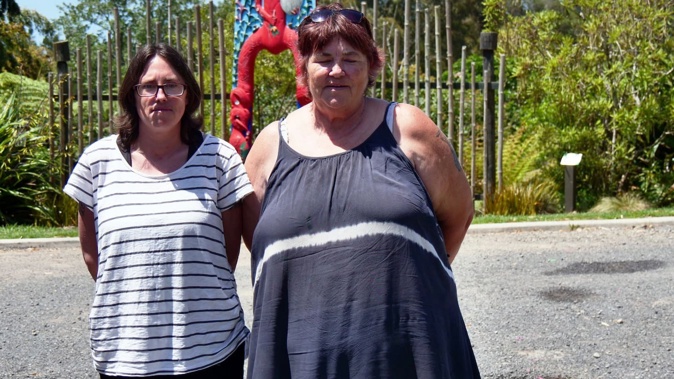
Content warning: Please note this article refers to suicide.
Watching a suicide plotline on Shortland Street has spurred a Tauranga woman to speak out to create more awareness of the help available to people in distress.
Twelve years ago, Louise Newton’s son-in-law Kevin Peck took his own life.
A week earlier, in a state of mental distress, he had called the national Suicide Crisis Helpline.
Newton said she, her husband and Kevin’s wife were all listening on the call when he was told the crisis centre could not help him.
But that has not changed her belief in the importance of helpline and other crisis services, and how they can save lives.
Newton said she decided to speak out about their experience after seeing an episode of Shortland Street that featured a self-inflicted death.
After seeing an ad for the crisis helpline following the show, she decided to take action.
Newton is concerned that crisis centres only advertise during suicide-related episodes of TV shows like Shortland Street or in news articles about self-inflicted deaths.
“There isn’t enough advertising. I haven’t seen any other helplines advertised,” Newton said.
“This is my gripe. Unfortunately, we couldn’t save my son-in-law. But I don’t want to see this happen to anyone else.”
 Bay of Plenty MP Tom Rutherford.
Bay of Plenty MP Tom Rutherford.
Bay of Plenty MP Tom Rutherford knows Newton’s issue and advised her to contact SunLive to discuss it.
“We’ve got a terrible history of suicide in New Zealand, and Louise’s campaign and story that she shared with me was more about making the support networks more widely known.”
New Zealand had one of the worst suicide rates in the world, and breaking the taboo topic would help those in need to get the help they needed, Rutherford said.
“I think you just do that by number one, breaking the ice and having the uncomfortable conversations with people so they know what support is available,” he said.
Rutherford said the simple solution was to increase people’s awareness and engage community leaders, such as politicians and sports people, to speak up.
“We have come into the Christmas period, making it an excellent opportunity to discuss where to get help.
“This is a really good opportunity, over family Christmas and the family barbecue, for you to talk about these sorts of things and where people are with their mental health.”
He said there was a lot of help for people in crisis, and helplines such as 1737 offered brief one-to-one counselling support that focused on one or two key issues a person needed help with.
“Whether it’s related to suicide or mental health or whatever it is, they [support workers] do an incredible job.”
Health NZ’s response
Health NZ, Hauora a Toi Bay of Plenty operations group director Pauline McGrath, said in an emailed response the safety and wellbeing of people requiring mental health support was a top priority.
“There are a number of call centres for people experiencing distress, and not all people get directed to the crisis team.”
People who called the crisis team for support could be advised to contact police (if imminent risk is present), attend the emergency department, or wait for the crisis team to call them back.
“We have a robust orientation process to ensure our staff are well equipped to manage and care for people experiencing severe distress.”
McGrath said the crisis team members must have at least five years’ experience in acute mental health care.
“Additionally, they undergo mandatory training in risk assessment, which includes evaluation of suicide risk and management.”
The team received regular internal training with a consultant psychiatrist and other external training was provided to kaimahi [staff] upon request, McGrath said.
“All national call centre services, such as Lifeline and Youthline, connect callers to the appropriate crisis teams when they deem a call to be beyond their scope.
“Individuals and their whānau who engage with our crisis teams receive a card with contact details for further assistance.”
The crisis line contact numbers for Bay of Plenty are available on the Hauora A Toi Mental Health and Addiction website, the Ministry of Health website, the Mental Health Foundation website, and the Health and Wellness community directory. Details on where to get help are also listed below.
“We collaborate with agencies and have strong connections with our non-governmental organisations, primary health organisations and primary care partners,” McGrath said.
“We also provide flyers and leaflets about our crisis services upon request.
Where to get help:
– Grief Support Services 07 578 4480
– Lifeline: 0800 543 354 (available 24/7)
– Suicide Crisis Helpline: 0508 828 865 (0508 TAUTOKO (available 24/7)
– Youth services: (06) 3555 906
– Youthline: 0800 376 633
– What’s Up: 0800 942 8787 (11am to11pm)
– Depression helpline: 0800 111 757 (available 24/7)
– Rainbow Youth: (09) 376 4155
– Helpline: 1737
If it is an emergency and you feel like you or someone else is at risk, call 111
Take your Radio, Podcasts and Music with you









